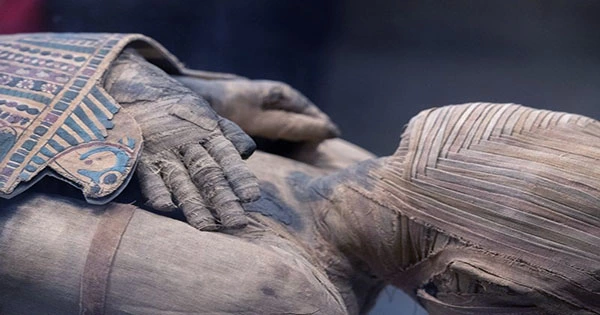In 2016, a large number of curse tablets were discovered in a bathhouse well in the Athenian Kerameikos, where they had lain unnoticed from the late fourth to early third centuries BCE. Curse tablets uncovered in the area are usually from the 5th and 4th centuries BCE, and they’re usually found in graves — so why were these objects discovered in a well? Researchers believe that a change in the legislation may have been to blame, since guards barred individuals from entering tombs in Athens, where they would have liked to conduct their curses. Isn’t it annoying when it happens?
People seeking retribution had to think outside the box to disperse their curse tablets, and a public well could have provided the ideal venue. Furthermore, the fact that wells plunge into the ground may have caused individuals in need of a decent curse to believe that this was a viable option to the tombs while they were out of commission. “The discovery in a bathhouse well can be linked to the fact that curse tablets, which were previously deposited in specific types of tombs, were now thrown into wells that were seen as another route to the underworld,” Dr Jutta Stroszeck of the German Archaeological Institute in Athens (DAI) told IFLScience.
“The shift occurred after Demetrius of Phaleron reorganized the Athenian necropolis in 317/307 BCE, greatly restricting the use of magic at graves.” Curses were popular in tombs because specific groups of the deceased were thought to be the finest curse bearers. In her research, Stroszeck mentions another collection of curse tablets from Kourion, an ancient location on Cyprus’ south coast that came with explicit instructions on where to place a curse tablet within a necropolis, dated from the 3rd century CE. They included the following.
“The new pieces show us that a range of shapes were constructed for this reason,” Stroszeck explained. “Apart from the more typical tablet or stripe shape, both of which may be traced back to prehistoric writing implements,” says the author. Curse tablets from Athens were frequently employed against legal opponents to prevent the cursed from speaking, moving, or even thinking, giving the curse-caster the upper hand.
According to Stroszeck, they were also employed by love rivals, and Haaretz claims that a curse from someone jealous of a newlywed couple’s marriage specifically mentioned the cursed bride’s vulva. Even charioteers would use curses to gain an advantage over their opponents before sports competitions. Underworld? It’s more like being unsporting.
















